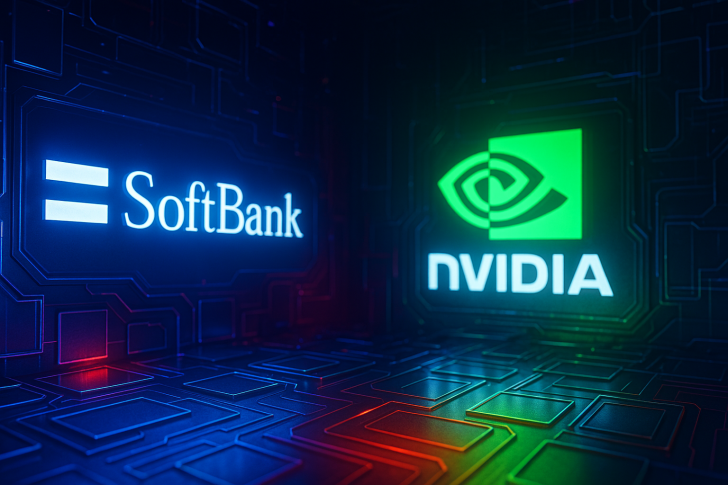SoftBank just made a move that's got everyone talking. The Japanese investment giant sold off its entire $5.8 billion stake in Nvidia—yes, the entire thing. For a company that's been riding the AI wave harder than almost anyone, this exit is raising some serious eyebrows. Let's dig into what happened and what it might mean for Nvidia investors.
A Sudden Exit That Caught the Market Off Guard
Here's the thing: this wasn't a gradual trim or a routine rebalancing. SoftBank completely walked away from Nvidia at a time when institutional money has been pouring into AI stocks like there's no tomorrow. The announcement hit trading desks hard, and people immediately started asking the obvious question—why would one of the world's most aggressive tech investors bail on what's arguably the defining AI winner of this era?
The timing makes it even more interesting. Nvidia has basically been the backbone of the global AI buildout. Their GPUs are everywhere, data center revenue keeps climbing, and enterprise adoption shows no signs of slowing down. So when a major player like SoftBank exits completely, it makes you wonder what they're seeing that we're not.
Why This Sale Actually Matters
Let's be real—when a firm with SoftBank's resources dumps nearly $6 billion worth of stock, it's not just noise. There are a few possible explanations floating around. Maybe they're redirecting capital toward Vision Fund projects that need funding. Maybe they need liquidity because the macro environment is getting choppy. Or maybe—and this is the one that makes traders nervous—they think Nvidia's run too hot after years of massive gains and decided to lock in profits while they could.
None of these scenarios change Nvidia's fundamentals, but they do force everyone to ask whether this was just smart portfolio management or an early warning sign about how sustainable the AI rally really is.
What the Charts Are Telling Us
Key technical signals worth watching:
- Nvidia's been consolidating in a defined range lately, taking a breather after those explosive AI-driven rallies earlier this year
- Support levels have held up during previous dips, with buyers consistently stepping in at deeper zones
- Volume spiked noticeably around the sale announcement, showing institutions are clearly repositioning
This kind of setup—tight range, defended support, rising volume—usually comes right before a bigger move in either direction. That makes SoftBank's timing pretty significant, whether they meant it that way or not.
What Happens Next
Nvidia's long-term story hasn't changed. AI adoption is still accelerating, data centers are still expanding, and enterprise compute demand keeps growing. SoftBank's exit doesn't suddenly make Nvidia's competitive advantages disappear, but it does inject some short-term doubt into the narrative.
What investors should watch now is pretty straightforward. Does Nvidia hold its key support levels? How are other institutional players responding? What does management say if they address this publicly? And critically, how do other AI stocks react—are they treating this as Nvidia-specific news or as a broader signal?
If buyers keep showing up at lower prices, Nvidia could shake this off quickly. But if the selling spreads and other AI names start wobbling, we might be looking at the start of a broader cooling period across the sector.
The bottom line: even dominant market leaders can become pressure points when massive investors decide to move on. The next few trading sessions will show whether this was just a speed bump or the beginning of something more complicated for Nvidia and the AI trade overall.
 Eseandre Mordi
Eseandre Mordi

 Eseandre Mordi
Eseandre Mordi


